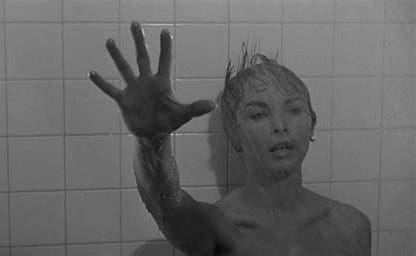The latest doom and gloom scenario concerns what AI might do to us in the future. It might become smarter than us, outwit us, subjugate us, and otherwise make life miserable. It can now make pictures that are photorealistic and can fool all of us. Right? Funny thing is, it’s been decades since I last believed what I see. It doesn’t, and never has, taken AI to fool people.
Jurassic park was released in 1993, just a little over 30 years ago. In the movie, humans are terrorized by cloned dinosaurs on a remote island. Years before, in another movie, we had something similar, in King Kong. King Kong is clearly contrived, but Jurassic park seamlessly integrated CGI dinosaurs with real people. I remember telling my wife, as we came out of the theater, ‘We’ll never again be able to trust anything we see.’
And then there’s ‘Psycho’. Released in 1960, there is no fake animation. It’s all real actors. Rationally, I knew that, of course. I saw actors pretending to be murdered, and another actor pretending to be the murderer. But they sucked me into the story, and I experienced genuine fear as I watched the movie.
So, for decades we have not been able to presume that what we see really happened. And for eons we have let ourselves feel emotions that have been elicited by actors playing make believe. Who needs AI?
We have terms such as ‘confirmation bias’, ‘cognitive dissonance’, and ‘mass spectrum psychosis’. All these terms take measure of the degree to which people choose to believe things uncritically, even rejecting established facts that contradict those beliefs. So, who needs AI?
Watching a movie, and getting wrapped up in it, provides emotional release. It’s a good way to spend an evening. It gives you commonality with others who have also seen the movie. That can make for great conversation. But it’s a MOVIE. It’s not REAL! Some people take what they are told, what they see, just a little too seriously, and not nearly enough critically. Shakespeare’s Merchant of Venice plays on people’s prejudice against Jews. It would be nice if Shakespeare had gone counter to the prejudice, and shown a Jew as a hero, but he didn’t. He might not have sold many tickets if he did.
Recently I reviewed American Fiction. The title has a noticeable double entendre. The movie is based on the book, ‘Erasure’, which is itself based on the black author’s experience as a Hollywood writer. He was routinely assigned to write stereotypical gansta roles for black actors. How many people form significant parts of their outlook on race in America, based, literally, on American fiction?
And even more recently, it has been demonstrated that Google deliberately programmed its AI to discriminate against Whites. People had the Gemini AI generate images of historical figures, nearly all of whom Google AI depicted as non-white. If AI was so smart, it would have realized that it was exposing itself to ridicule and derision. But it’s not that smart. Not really. It has no sense of perception. Unfortunately, neither do its human programmers.
No, you can’t believe what you see or hear. It doesn’t mean it’s wrong, it means you need to always apply reason and rationality. You must be perceptive. Do you believe what you are seeing because it’s real, or because it’s what you want to believe?
Do you remember the fable of the Emperor’s New Clothes? The story predates AI by centuries, yet it illustrates a modern reality; people are all too willing to go along, to believe that what they see and hear is indisputable truth.
Never mind what other influences are playing on you, evaluate for YOURSELF. Only in that way can you separate the wheat from the chaff, the fiction from the fact.






